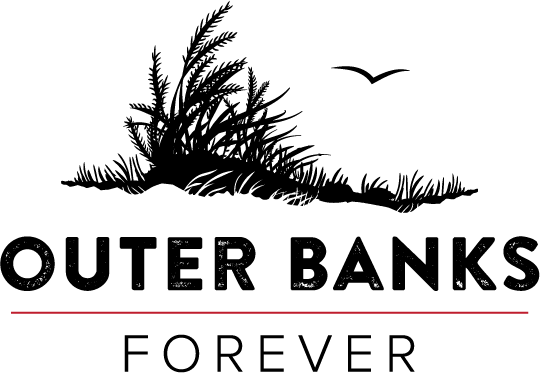Our Meet Your Ranger series introduces you to the many amazing people who support our OBX national parks every day!
Please tell us a little bit about yourself.
Hometown: Sofia, Bulgaria
Education: B.S. in Biology with an emphasis in Wildlife, Grand Valley State University
Position: Supervisory Biological Technician at Cape Hatteras National Seashore
Where he can be found: Nags Head office located near Coquina Beach
Other national parks you’ve worked at: Sleeping Bear Dunes National Lakeshore (Michigan)

Paul with a whale tail on Cape Hatteras National Seashore.
What do you like most about the Outer Banks?
The exposure to a diverse set of wildlife (both marine and terrestrial) that can only be found in a coastal ecosystem. My favorites include migrating humpback whales during the winter months and nesting sea turtles.
What does a typical workday look like for you?
Coordinating with a fantastic team of BioTechs (Biological Technicians) to survey the Cape Hatteras National Seashore beaches for nesting sea turtles and shorebirds. Also documenting any stranded (live or deceased) marine wildlife, such as sea turtles, dolphins, porpoises, whales and seals. Please report any live or deceased sea turtle or marine mammal you see to our Stranding Hotline at: (252) 216-6892.

Paul working with his team of biological science technicians on Cape Hatteras National Seashore.
What is your favorite thing about working in our OBX national parks?
The stellar cooperation within the National Park Service and among all outside entities. Some of the work we do can be quite complex and requires coordination with multiple organizations such as the National Oceanic and Atmospheric Administration (NOAA), the North Carolina Wildlife Resources Commission (NCWRC), the North Carolina Department of Transportation (NCDOT), the United States Coast Guard (USCG), the North Carolina Aquarium on Roanoke Island, the United States Fish and Wildlife Service (USFWS) and various academic institutions. Everyone on those teams seems to be motivated to assist in any way they can!
What inspired you to follow this career path?
My passion for wildlife and the outdoors. I love being a hands-on person, so any way that can make a direct, positive difference as it relates to wildlife is a big win!
What is your favorite memory from working at our OBX national parks?
Encountering a sea turtle that is still on the beach and finishing laying a nest has always been a highlight that I look forward to every summer. It doesn’t happen very often, but when it does it’s beautiful.

Paul with a nesting sea turtle on Cape Hatteras National Seashore.
Why are our OBX national parks important?
They protect a vital barrier island ecosystem that may not be around forever due to increasing sea levels and increased major storm events. The beaches on Cape Hatteras National Seashore are protected from major development and thus are as close to “natural” as you can find. I think folks should take advantage of that to create long-lasting memories for themselves and their families.
Is there anything else you’d like people to know about you or our parks?
I am not very good at juggling!

